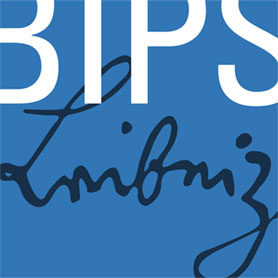ECRA Member Lisa Kühne:
"Decision support for public health departments using statistical-epidemiological risk modeling for the containment of the Corona pandemic."
EsteR - Decision support for public health departments using statistical-epidemiological risk modeling for the containment of the Corona pandemic.
Background
Health departments continue to face significant challenges in containing the SARS-CoV-2 pandemic. Infections will continue to occur on a continuous basis, especially with further openings in public life, a higher number of new infections in group settings is expected. This will place a greater burden on public health departments, as they will have to follow up with contact persons for each contact persons for each case of infection, record test results, and, under certain circumstances, prescribe quarantine. prescribe quarantine. In addition, the health offices perform a wide range of public health service tasks that tie up staff. With our project we support health authorities to make efficient decisions with the help of statistical risk estimation.
Steps
Background
Health departments continue to face significant challenges in containing the SARS-CoV-2 pandemic. Infections will continue to occur on a continuous basis, especially with further openings in public life, a higher number of new infections in group settings is expected. This will place a greater burden on public health departments, as they will have to follow up with contact persons for each contact persons for each case of infection, record test results, and, under certain circumstances, prescribe quarantine. prescribe quarantine. In addition, the health offices perform a wide range of public health service tasks that tie up staff. With our project we support health authorities to make efficient decisions with the help of statistical risk estimation.
Research Objective
The aim of the planned project is the development, extension and evaluation of digital tools for decision support in German public health departments in the context of the SARS-CoV- 2 pandemic. The resulting digital support is based on statistical-epidemiological models and addresses various questions, models and addresses various issues that arise in public health departments in the follow-up of contacts of contacts and the ordering and, if necessary, lifting of quarantine requirements. Existing decision-making processes are made more efficient and accurate by providing objective case-based information is comprehensibly processed into a decision-making aid in accordance with current epidemiological findings. into a decision support system.Steps
In order to be able to recommend a broad use of the tools and thus to enable a nationwide application health authorities, the questions covered will be updated, refined and extended with the help of other health authorities. If necessary, further use cases can be can be modeled, e.g., unclear situations such as group meetings in which a sick person has attended, but in the course after the meeting, a large number of the other tested negative. By means of evidence synthesis through systematic searches, we will the model parameters are identified and quantified. Experts for statistical modeling, programming and practical application validate the underlying models. These models will be presented in a digital tool, which will be made available to the staff of the health departments. In order to ensure a broad usability the application will be evaluated by some employees of the health offices and adapted on the basis of these results. In addition, possible barriers to implementation in the health health offices as well as technical and ergonomic requirements will be identified and addressed.
 English (United Kingdom)
English (United Kingdom)  Deutsch (Deutschland)
Deutsch (Deutschland) 



